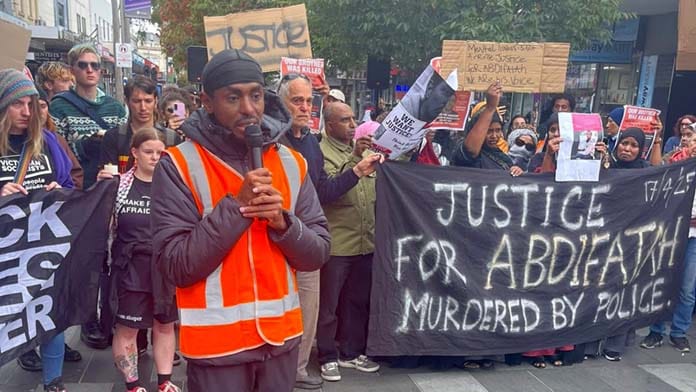The Victorian government has passed a bail law that includes removing the requirement to consider remand as a last resort for children.
It is part of a suite of changes that Labor Premier Jacinta Allan boasts will give Victoria the toughest bail laws in the country and “jolt the system”.
Victorian Labor is sinking in the polls and facing a media onslaught claiming a crime epidemic. Allan has responded by ripping up Labor’s own 2023 bail law reforms and acting “tough”.
Imprisoning children is a sign of catastrophic system failure. Indigenous people are imprisoned at about 15 times the rate of all people in Victoria. Victims of intergenerational poverty and poor schooling are also over-represented in prisons.
Incarceration of children entrenches cycles of disadvantage and increases the likelihood of further offending.
Victoria Police acknowledge it is a misconception that children are most involved in stabbings. The Crime Statistics Agency Victoria chief statistician makes it clear that the state has identified only “about 300 children and young people that commit these crimes”.
Allan said: “An expanded recruitment campaign is being prepared for corrections and youth justice workers.” It costs $3000 a day to incarcerate a child in Australia; this equates to a million dollars a year that could be spent on housing, education and welfare for each of these known 300 children and their communities, now. But Labor will instead spend lavishly on their punishment.
The new law also means that someone who commits an indictable offence while on bail for another indictable offence will need to show “compelling reasons” before being granted bail.
Although the term “indictable offence” sounds serious, the term covers offences including shoplifting and drug possession. This means that a person on bail for stealing food who is then charged with possession of cannabis will face the same bail test as a person charged with manslaughter.
The new law directs judges and magistrates to consider community safety first before deciding whether someone is placed on bail. The safety and wellbeing of the community is important to everyone, but remand is a short-term option with harmful long-term consequences.
Disaster
In 2023, the Victorian government loosened the state’s bail laws, which were labelled an “unmitigated disaster” during the inquest into the death in custody of Aboriginal woman Veronica Nelson.
But in February, responding to community concerns about youth crime, Labor hastily announced a review of Victoria’s bail laws in the lead-up to the Werribee by-election, with the Premier later conceding the government had “got it wrong”.
The new law is likely to hit Indigenous people hardest. Victorian bail law changes in 2013 and 2018 have been linked to a 560 per cent increase in the number of First Peoples entering prison unsentenced. In 2021–22, 87 per cent of Aboriginal women who arrived in prison were unsentenced.
Labor is promising a second round of changes to bail laws in mid-year, to hit what it calls serious, repeat offenders.
Allan admits: “The second Bill is expected to result in a further increase in the number of adult and youth offenders on remand, for which the system must be ready.”
Changes to the bail laws have been condemned by organisations including justice group Flat Out and the National Children’s Commissioner. Rank-and-file Australian Education Union members ensured a strong motion opposing the bail laws was passed at the union’s state council.
Racially profile
Meanwhile, Labor has passed another new law expanding police power to “designate” an area and carry out searches for weapons without a warrant. Previously, a designated area was for 12 hours—now it can be for six months.
Sarah Schwartz, the Legal Director at the Human Rights Law Centre, said the government was handing “Victoria Police carte-blanche powers to racially profile marginalised groups, target and harass protesters and silence dissent”.
On 11 April, Victoria Police launched a “high-visibility” operation in Footscray, deploying uniformed officers, the Public Order Response Team, Dog Squad and Highway Patrol to crack down on rising crime and anti-social behaviour. Within a week, they had shot and killed Somali man Abdifatah Ahmed.
The Black Lives Matter protest calling for justice for Abdifatah, for an end to police racism and brutality and for investment in services was 250 people strong, and withstood still more police violence.
With increased powers, and the endorsement of Labor’s reactionary agenda, police will kill again. We urgently need a campaign to stop their law and order offensive, involving unions, youth and community groups, and civil liberties organisations.
By Lucy Honan






